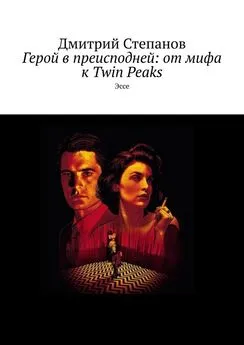Peake, Mervyn - 02 Gormenghast
- Название:02 Gormenghast
- Автор:
- Жанр:
- Издательство:неизвестно
- Год:неизвестен
- ISBN:нет данных
- Рейтинг:
- Избранное:Добавить в избранное
-
Отзывы:
-
Ваша оценка:
Peake, Mervyn - 02 Gormenghast краткое содержание
02 Gormenghast - читать онлайн бесплатно полную версию (весь текст целиком)
Интервал:
Закладка:
For all his conviction that he was asleep, and in spite of the resilience and apparent ease of his flight-running, he had become very tired. The gilded and encrusted trunks of the great oak trees swam by him one after another. The emptiness seemed even more complete and terrible since that will-o'-the-wisp had floated across his path.
All of a sudden he became sharply aware of his fatigue and of hunger, and at the same time a weakening of his conviction that he was dreaming. 'If I am dreaming,' he thought, 'then why should I need to spring from the ground? Why shouldn't I just be carried along?' And to test his idea he made no further effort, merely keeping his balance in the air each time his drop to earth lifted him again into those long and fantastic cruises; but the impetus weakened with every dwindling flight and the volitant boy came gradually to a standstill.
With the rhythm of his progress broken, his belief that he was in a state of dream was finally dispelled. For his hunger had become insistent.
He looked about him. The same scene enclosed him with its mellow cyclorama - its hateful dream of gold.
But for all this horror (it had laid hold of him again now that he no longer believed himself asleep), his fear was in some way lessened by a peculiar thrill which seemed to grow in intensity rather than quieten until it had become a trembling globe of ice under his ribs. Something for which he had unconsciously pined had shown either itself or its emblem in the gold oak woods. Realizing that he had been wide awake ever since he had crept (how long ago!) to the stables of Gormenghast, he knew that slender spectre - that reed-like, feather-like thing with its head turned half way as it rose in slanting volitation across a glade as wide as a lawn, was true, was here in the oak forest with him at that very moment: was perhaps watching him.
It was not only the uncanniness of such a phasma which haunted him now.
It was his craving to see again that essence so far removed from what was Gormenghast.
And yet, what had he seen? Nothing that he could describe. It had been so rapid - that flight across his vision: gone, as it were, before his eyes were ready. The head turned away... turned away. What was it that cried to him? What was it that this shred, this floating shred of life, expressed? For in the air with which it had moved through space was a quality for which Titus unknowingly hungered. On the long glissade of the wasp-gold flight, like a figment from a rarer and more curious climate than Titus had ever breathed, it had expressed as it rose across the glade the quintessence of detachment: the sense of something intrinsically tameless, and of a distilled and thin-air beauty.
All this in a flash. All this, a confusion in Titus' heart and brain.
What he had felt when he had halted his horse that same morning and heard the voices of the mountain and the woods crying, 'Do you dare!' was redoubled within him. He had seen something which lived a life of its own: which had no respect for the ancient lords of Gormenghast, for ritual among the foot-warn flagstones: for the sacredness of the immemorial House. Something that would no more think of bowing to the seventy-seventh Earl than would a bird, or the branch of a tree.
He beat his fist into the palm of his other hand. He was frightened. He was excited. His teeth chattered. The glimpse of a world, of an unformulated world, where human life could be lived by other rules than those of Gormenghast, had shaken him; but for all the newness, all the vague hugeness of the mutinous sensations that were thronging in him, yet under the pain of his hunger, even they began to give way to the consuming need for food.
Was there a slightly different feeling about the light as it slanted through the oak leaves and lay along the glades? Was there a less deathly stillness in the air? For a moment Titus thought he heard a sigh among the leaves above him. Was there a quickening in the torpor of the midday stillness?
There was no way for Titus to know which way to turn. He only knew that he could not return in the direction from which he had come. And so he began to walk as quickly, yet as lightly, as he could (to avoid the nightmare sensation that those loping and unbridled flights through the air had bred in him) in the direction in which the mysterious and floating creature had disappeared.
It was not long before the peerless lawns of moss that stretched between the oaks became pranked by dumps of ferns which, ignoring the sun's rays, appeared silhouetted, so dark was the viridian of their hanging fronds, so luminous their golden background. The relief to the boy's spirit was instantaneous, and when the sumptuous floor gave place to coarse grasses and the rank profusion of flowering weeds, and when, most refreshing of all to Titus' eyes, the oaks no longer cast their ancestral spell across the vistas, but were challenged by a variety of trees and shrubs, until the last of those gnarled monarchs had withdrawn and Titus found himself in a fresher atmosphere, then, at last he was dear of the nightmare and, with his hunger for redundant proof, was once again in the clear, sharp, actual world that he knew. The ground began to drop away before him at a lively gradient. As on the far side of the oak forest, here also were scattered rooks and groups of ferns; and then all of a sudden Titus gave a shout of happiness to see a living thing after the emptiness and nervelessness of the golden glades - a dog fox that, disturbed by his footsteps, had woken out of its midday sleep in a quiet nest of ferns, had got to its feet with extraordinary self-possession and trotted away at an even pace across the slant of the falling ground.
At the base of the slope a hazel wood began. Here and there a silver birch lifted its feathery head above the thicker foliage; or a dark-green ilex seemed like a green shadow in the sunlight. Titus began to hear the voices of birds. How could he quieten his hunger? It was too early in the year for wild fruit or berries. He was utterly lost, and the exhilaration he had felt at escaping from the oak woods was beginning to dwindle and to turn into depression when, after threading his way for little more than a quarter of a mile through the hazel trees he heard the sound of water; faint but distinct, away to the west. At once he began to run in the direction of the cool sound, but was forced to relapse into a walking pace, for his legs were heavy and tired, and the ground was uneven and patched with ground ivies. But as the sound of the water grew momently louder, so the ilex trees began to grow more thickly among the hazels, so that there was a rich, dark, blackish greenness about the shadows of the trees both overhead and at Titus' feet. The water now sounded loud in his ears, but so dense had the trees become that it was with a sudden shock that the dazzling breadth of a fast foam-streaked river appeared before him, and at that very instant, from out of the shadows of the wood on the opposite bank, there stepped a figure.
He was a gaunt and marcid creature, very tall and thin; his high, scrawny shoulders twisted forwards, his cadaverous head lowered, with the thinly bearded jaw protruding as though in defiance. He was clothed in what had once been a suit of black material, but was now so bleached by sun and soaked in a hundred dews that it had become a threadbare blotchwork of olive-and-grey rags indistinguishable among the leaves of the forest.
As this gaunt figure stepped down to the water's edge a sound of clicking that Titus could in no way account for floated over the bright waters. It appeared to break out at his every step like a distant musket shot or the breaking of a dry twig, and to cease whenever he stopped moving. But Titus soon forgot about this peculiar noise, for the man on the opposite bank had reached the river and waded out to where a flat, sun-baked rock the size of a table basked in the midstream.
As he extracted from among his rags a length of line and a hook, and as he began to fix the bait, he glanced about him, comparatively carelessly at first and then with a dawning apprehension, until finally he dropped his line upon the rook beside him and, sweeping the opposite shore with his eyes, he focused them on Titus.
Partially shielded behind a heavy branch of leaves, Titus, who had made no sound, was horrified at being so suddenly discovered and the blood rushed into his face. But he could not take his eyes from those of the emaciated man. He was now crouching on the rock. His small eyes, which had burned beneath his rocklike brows, now glittered with a peculiar light and all at once his hoarse voice sounded across the river: 'My Lord!' It was a sharp, rough cry, with a catch in the throat as though the voice had not been sounded for a long while.
Titus, whose instincts had been torn between flying from those hot wild eyes and his excitement at finding another human being, however emaciated and uncouth, stepped forward into the sunlight at the river's edge. He was frightened and his heart beat loudly, but he was famished also and deadly weary.
'Who are you?' he cried. The figure stood up on the hot rock. His head was thrust forward towards Titus; his tall body trembled.
'Flay,' he said at last, his voice hardly audible.
'Flay!' cried Titus. 'I've heard of you.'
'Aye,' said Flay, his hands gripped together... 'likely enough, my lord.'
'They told me you were dead, Mr Flay.'
'No doubt of it.' (He looked about him again, taking his eyes from Titus for the first time.) 'Alone?' His interrogation sounded hoarsely across the water.
'Yes,' said Titus. 'Are you ill?'
Titus had never seen so gaunt a man before. 'Ill, lordship? No, boy, no... but banished.'
'Banished!' cried Titus.
'Banished, boy. When you were only a... when your father... my lord...' He ended suddenly. 'Your sister Fuchsia?'
'She's all right.'
'Ah!' said the thin man, 'no doubt of it.' (There was a note almost of happiness in his voice, but then, with a new note): 'You're done, my lord, 'n windless. What brought you?'
'I escaped, Mr Flay - ran away. I'm hungry, Mr Flay.'
'Escaped!' whispered the long man to himself with horror; but he gathered and pocketed his hook and line and withheld a hundred burning questions.
'Water's too deep - too fast here. Made crossing - boulders - half mile up stream - not far, lordship, not far. Follow your edge with me, follow your river edge, boy - we'll have a rabbit'; (he seemed to be talking to himself as he waded back to the bank on his side of the river) 'rabbit and pigeon and a long cabin-sleep.... Blown he is son of Lord Sepulchrave... ready to drop... Tell him anywhere eyes like her ladyship's Escaped from the Castle!... No... no mustn't do that... No, no must send him back, seventy-seventh Earl. Had him in my pocket size of a monkey... long ago...'
And so Flay rambled on as he strode along the bank, with Titus following him on the opposite shore, until after what seemed an endless journey by the water's edge they came to the crossing of boulders. The river ran shallowly at this point, but it had been no easy work for Flay to shift and set the heavy boulders in place. For five years they had stood firm in the rushing water. Flay had made a perfect ford, and Titus crossed at once to him. For a moment or two they stood awkwardly staring at each other; and then, all of a sudden, the cumulative effects of his physical excitement, the shocks and privations of the day, told upon Titus and he collapsed at the knees. The gaunt man caught him up in an instant and, putting the boy, carefully over his shoulder, set off through the trees. For all his apparent emaciation there was no question as to Mr Flay's stamina. The river was soon left far behind. His long, sinewy alms held Titus firmly in place across his shoulder; his lank legs covered the ground with a long, thin, muscular stride and, save for the clicking of his knee-joints, with peculiar silence. He had learned during his exile among the woods and rocks the value of silence, and it was second nature for him to pick his way over the ground like a man born to the woods.
Читать дальшеИнтервал:
Закладка:



